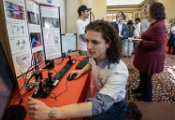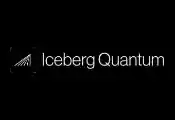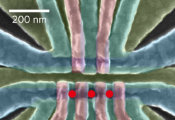The Department of Energy Quantum Leadership Act Would Authorize More Than $2.5 Billion for Quantum Research Conducted at DOE
WASHINGTON, August 1, 2024 -- Senate Majority Whip Dick Durbin (D-IL) and U.S. Senator Steve Daines (R-MT) today introduced legislation to advance the United States’ capacity to invest in quantum information science and research and development (R&D) through the U.S. Department of Energy (DOE). As R&D advances quantum science, engineering, and technology, the DOE Quantum Leadership Act of 2024 would reinvigorate R&D projects at DOE by authorizing $2.5 billion in funding over the next five years—well above the $625 million for DOE-related programs laid out in the now-expired National Quantum Initiative Act of 2018. The DOE Quantum Leadership Act would also provide DOE the authority to expand its current quantum R&D initiatives.
“For the last five years, the Department of Energy has pioneered research into quantum technologies to ensure the United States leads the world in computing, security, and connectivity. And what’s more, Illinois is poised to become a global hub for technology and innovation as quantum computing takes center stage in our state. I want to keep that momentum going,” said Durbin. “That’s why Senator Daines and I have introduced the DOE Quantum Leadership Act to supercharge research, development, and commercialization of quantum technologies. With this legislation, we can ensure our DOE facilities, including Illinois’ Fermilab and Argonne National Labs, are well-equipped to lead this quantum revolution.”
“Our National Quantum Initiative Program is essential in maintaining our position as global leaders in science and technology, and also supports hundreds of Montana jobs. I’m glad to work with my colleagues on renewing this bipartisan legislation that will accelerate quantum research, increase our national security, and bolster the economy both in Montana and across the nation,” said Daines.
“Quantum technologies will revolutionize multiple industries, impacting our everyday lives and strengthening our economic and national security — but only if we reduce barriers to commercialization,” said David Awschalom, the Liew Family Professor of Molecular Engineering and Physics at the University of Chicago and the Director of the Chicago Quantum Exchange. “To realize quantum’s full potential, we need a robust supply chain, an inclusive and well-prepared quantum workforce that is large enough to meet fast-growing demand, and communication channels among government agencies, industry sectors, and other members of the ecosystem. Expanding the important work of the DOE’s five national research centers will help ensure that the US remains a global leader in quantum technologies.”
"The National Quantum Initiative (NQI) Act of 2018 initially enabled America to take the lead in the global quantum race, but this act has expired. It is essential to reauthorize the NQI to maintain America's leadership in quantum technology. The DOE Quantum Leadership Act, proposed by Senator Durbin and Senator Daines, is crucial at this pivotal moment in the global quantum race as quantum technology approaches true end-use applications. The Montana Photonics & Quantum Alliance wholeheartedly supports the DOE Leadership Act and believes that action is needed now,” said Jason Yager, Executive Director of the Montana Photonics & Quantum Alliance.




































